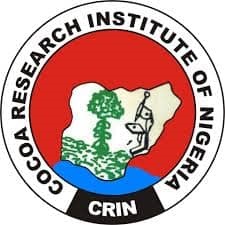There has been a major setback within the Institute’s operations as a result of series of conflicts within the management system in the previous administrations. The present CRIN Executive Director (ED), Dr. Patrick Adebola, since assumption to office, had purposed in his heart to bring a lasting peace to the Institute. Consequently, CRIN procured the services of the ABNIF Professional Services, noted for Developing and Coordinating Target Training Programs, to plan and implement a management retreat aimed at fostering unity and team spirit in order to achieve targeted change leadership for the Institute. The retreat tagged: “Leadership and Managing Change Programs”, was held at the Conference Hotel, Sagamu, Ogun State on 21 – 23 March, 2021. In his opening remarks, the ED emphasized on the need to build a strong team spirit among the management members and strategize on how best to implement change leadership to effectively carry all staff along in the operational system of the Institute to achieve the set goals and objectives. He equally opined that the retreat will enhance the leadership knowledge and skills of the management members.
Change Leadership To Implement Change Within The Organizational System
This session addressed the importance and need for a change in the organizational leadership. The highlights of the session include: how to identify the desired change needed, qualities of a good leader leading the change process, levels of leadership (360° leadership), factors (internal and external) that will enforce or hinder the change process within the organization, key performance indicators and evaluation mechanisms for determining progress in change leadership. Some of the specific factors considered include: communication, interpersonal relationship, motivation and reward, performance appraisal, coaching and mentoring. The session was finalized by group exercises in using the change leadership tool kit.
Change Management For Effective And Efficient Organizational Performance
The concept of change management in an organizational context was discussed. The Awareness, Knowledge, Desire, Ability and Reinforcement (AKDAR) change management cycle was used to buttress the discussion through exercises and group presentations. Some of the highlights in the session includes the 7 R’s of change management, the four principles of change management, change management tools such as Flowcharts/Process Maps, ADKAR Analysis, Culture Mapping, Force Field Analysis, Stakeholder Analysis, Kotter’s 8 Step Change Model, and Lewin’s Change Model, amongst others. Some of the tools were used during the class discussions and group exercises.
Emotional Intelligence for Guidance and Effective Productivity
This session addressed the need for the leaders to be emotionally intelligent while leading and handling issues that affects them
and their staff. The course was aimed at building self-awareness, self-control, and social skills of leaders to see the broader picture for every events, actions and/or issues that may arise in managing people. Some of the key highlights discussed in this session include Self-awareness, Self-regulation, Motivation, Empathy, and Social skills.


